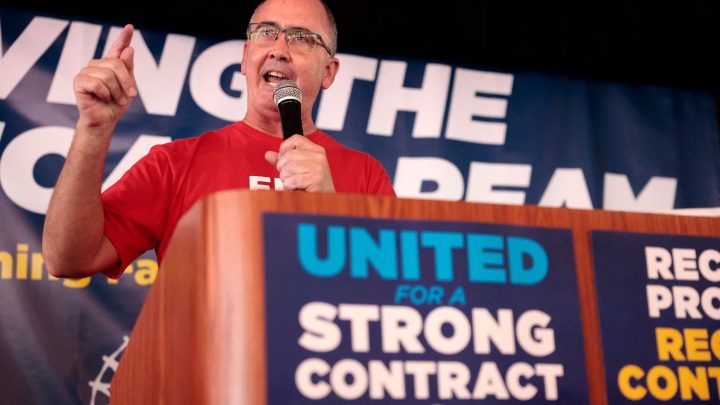
Autoworkers union pushes for 32 hour workweek

United Auto Workers voted on Friday to authorize a strike. The union is negotiating a new collective bargaining agreement with the Big 3 Detroit automakers — Ford, GM and Stellantis.
To be clear, workers aren’t on strike yet, but they have given union leadership the authority to call a strike if necessary.
One of the UAW’s demands? A four-day workweek at five-day workweek pay.
General Motors, Ford and Stellantis have all posted billions in profits on recent earnings reports. That’s emboldened the UAW, said Harry Katz, professor of labor relations at Cornell.
“The auto companies are making significant profits because of steady sales, so the auto companies would have a lot to lose if the auto workers went on strike,” he said.
Katz said the union likely has bigger priorities than the four day workweek, including wage bumps of at least 40% and restoring guaranteed pension benefits.
But getting a 32-hour work week without losing pay could help UAW members handle the transition to a green economy.
“It’s a well known fact that assembling electric vehicles takes fewer person power hours than an internal combustion engine,” said Sharon Block, a professor at Harvard Law School.
The EV transition, though, poses another challenge for autoworkers: Unionizing the plants that build EV batteries.
There’s a lot happening in the world. Through it all, Marketplace is here for you.
You rely on Marketplace to break down the world’s events and tell you how it affects you in a fact-based, approachable way. We rely on your financial support to keep making that possible.
Your donation today powers the independent journalism that you rely on. For just $5/month, you can help sustain Marketplace so we can keep reporting on the things that matter to you.











